Introduction to Ishtiaq Hussain Qureshi:
He was born on 3rd November 1903 in Uttar Pradesh, British India. Ishtiaq Hussain Qureshi (famously known as I.H. Qureshi), SP, HI, was a Pakistani history master, instructed individual, author, and a teacher in a political history at the Karachi University. He had viewed as (thought of as) the establishing individual from Muqtada Qaumi Zaban and filled in as the primary training priest of Pakistan. He likewise credited with altering a four-volume arrangement on the history of Pakistan [1]. There are many writers and scholars who became famous in the world like Allama Khadim Hussain Rizvi, Dr Allama Muhammad Iqbal, Tariq Aziz, Ahmad Hasan Dani and many others that can be read from here.
| Basic information | Ishtiaq Hussain Qureshi |
| Nationality | Pakistani |
| Date of Birth | 20th November 1903 |
| Place of Birth | Patiala, near Allahabad, United Provinces, British India |
| Date of Death | 22nd January 1981 |
| Age | 77 years old. |
| School /College | Matriculation in 1916 |
| University | Aligarh Muslim University, St. Stephen’s College, Cambridge University |
| Career | 1948 – 1981 |
| Status | Historian, Scholar, Writer |
| Institutions | Delhi University, Punjab University, Columbia University, Karachi University, National Language Authority |
| Awards | Sitara-e-Pakistan, Pakistan Post issued commemorative postage in his name |
Early Life of Dr. Ishtiaq Hussain:
Prof Dr. Ishtiaq Hussain Qureshi was one such individual. He is one of the large names in historiography and he affected the world forever, as well. His true to life sketch peruses like a plot straight out of a customary story-book where a kid from an unassuming community who once couldn’t pay for fair training later ventures to the far corners of the planet and turns into a priest and a renowned man. Dr. Qureshi’s composed history affected the world forever and lived history [1].
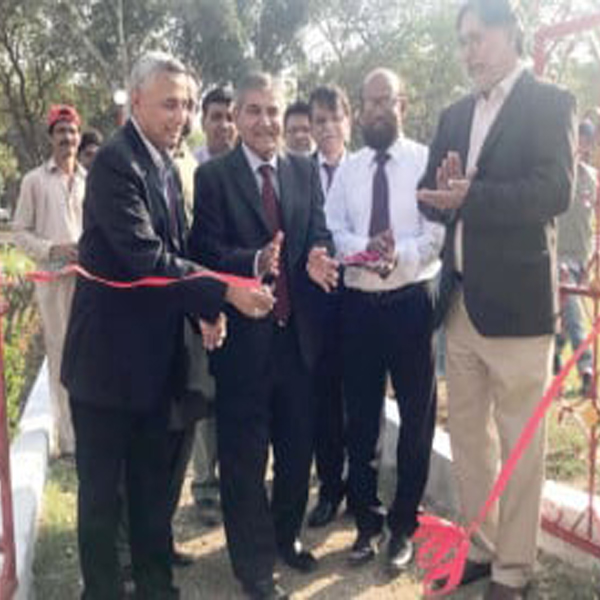
Family:
Dr. Sahib’s family had endured much on account of the British. His granddad’s sibling hanged for partaking in the 1857’s battle of freedom and his granddad was flame-broiled about his speculated collaboration with his sibling. Dr. Sahib loathed the colonialists and, along these lines, joined the Non-Co-activity Movement and the Khilafat Movement when they dispatched. During the development, he set up Khilafat advisory groups in the rustic zones and increased significant experience that molded his character and broke his confidence in the idea of Hindu-Muslim solidarity [1].
Education of Dr. Ishtiaq Hussain Qureshi:
Ishtiaq Hussain Qureshi was born in a respectable group of Patiala, District Etah, a town in Uttar Pradesh, British India. He did registration in 1916 and joined MAO College Aligarh. Right now, he took a dynamic part in Khilafat’s development. He did graduation and M.A. in History from St. Stephen’s College, Delhi with unique excellence. In 1927, he got M.A. in Persian [1].
Services in the Institution and Organizations:
He served as Lecturer in History at St. Stephen’s College from 1928 to 1944. Between 1937-1940, he learned at Cambridge University for a Ph.D. degree. The subject of his proposal was the Administration of the Sultanate of Delhi. During this period, he likewise quickly joined the Pakistan National Movement established by Chaudhary Rahmat Ali. After getting back from England, he joined Delhi University, where he named Professor of History and the Dean of the Faculty of Arts. He additionally filled in as Acting Vice-Chancellor of the Delhi University. In 1947, during the Partition riots, when the Muslim understudies of the St Stephen’s College must cleared to the Purana Qila, the hordes torched Dr. Qureshi’s library [1].
Ishtiaq’s Profession in Pakistan:
After experiencing riots, he moved to Pakistan in 1948. There, he proceeded with his scholastic and political career. He filled in as an individual from the Constituent Assembly of Pakistan. In 1949, he had chosen as Professor of History at the University of the Punjab, Lahore. He likewise joined the Government of Pakistan as Minister of Refugee and later than Minister of Education [1].
Popular Book:
Later on, he joined Columbia University, New York where he composed his popular book, the Muslim Community of South Asia, as an account of the hardships of the Muslims in South Asia. On his return, he assumed a vital part in the University’s improvement of Karachi University improvement [1].
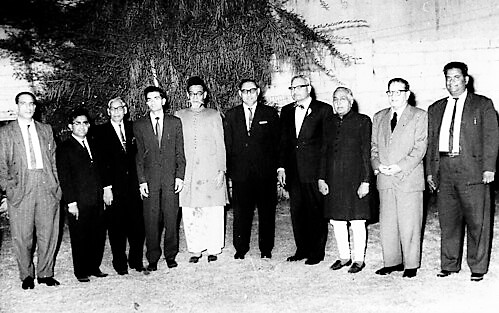
Investigating and Writing:
The prominent part of his character is that during his whole political profession he never quit his insightful interests and continued investigating and composing. Joining Columbia University as a meeting teacher in 1955 gave him a chance to stay occupied with a variety of scholarly and insightful exercises. Here he remained till 1960 and created his particular work ‘The Muslim people group of the Indo-Pakistan sub-landmass’, an achievement in the sub’s historiography-mainland. In 1960, he was welcome to head the then recently settled ‘Focal establishment of Islamic examination’ [1].
Vice-Chancellor:
He acknowledged the offer, yet in 1961 made Karachi University’s Vice-Chancellor. It was a test, as the early varsity was wrestling with a ton of issues. Dr. Sahib’s vision, experience, and constant work changed it into one of the nation’s best colleges. He got new squares of structures built, new offices, and other personnel opened and sent many college educators to another country for additional examination and preparation. He got the varsity’s focal library built that today houses over 200,000 volumes [1].
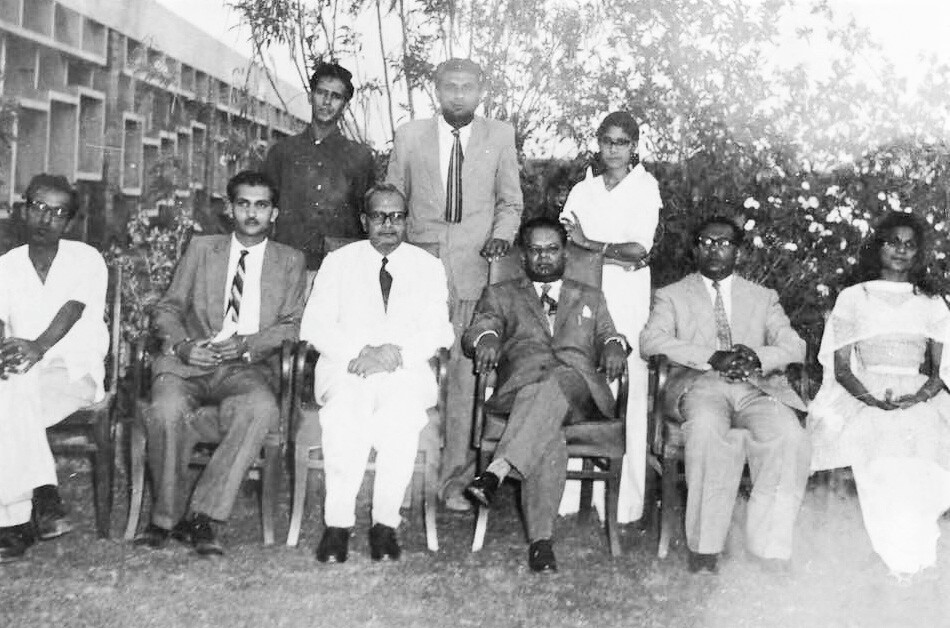
Two Important Books:
During his residency as VC, he wrote two significant books, ‘The battle for Pakistan’ and ‘The organization of Mughal realm’. After his retirement as VC in 1971, Dr. Sahib composed three important books, to be specific ‘Training in Pakistan’, ‘ Akbar the organizer of Mughal domain’ and ‘Ulema in legislative issues’ [1].
The Struggle for Pakistan:
At the point when the Muslims requested a different sovereign state grasping the Muslim larger part regions in the subcontinent, many impartial eyewitnesses had shocked. Indeed, even today Pakistani essayists think that it’s important to clarify the raison d’être of their country. In the book, Qureshi is attempting to fill holes, clear disarray, and give authentic approval to the idea of the Two-country hypothesis and the difficulties looked by Muslims in their battle for Pakistan. Qureshi’s decisions on Pakistan’s development are: “Pakistan appeared as the consequence of the fruitful battle of the Muslims of the Sub-landmass against two dominions, British, and Hindu” and that “the Pakistanis didn’t get Pakistan on a silver platter” [1].
Different Posts:
Dr. Sahib held many posts as well, for example, president of Pakistan Historical Society, and Member of National Commission for Archives and Historical Records. He joined in and tended to countless public and global workshops. His innumerable papers on Pakistan’s set of experiences and its way of life fill in as a reference for researchers. He did at present some more insightful work during the last period of his life when in 1979 he had approached to head the then recently settled ‘Muqtadira Qaumi Zaban’, or the National Language Authority’.
Here he arranged and made the main strides towards making Urdu a language that could supplant English as a mechanism of guidance and as a legitimate language of the nation, a reason for which he had been battling for a mind-blowing duration. Even though Urdu has set up to take on the position of the nation’s authentic language, through the endeavors of Muqtadira and other comparative foundations of the nation, a need for political will by progressive governments has been preventing its encouraging [1].
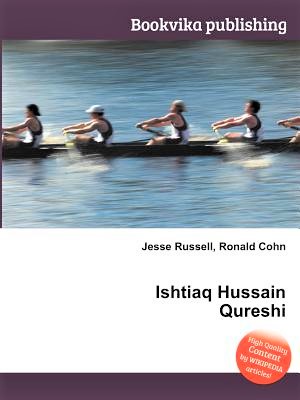
English Titles Books:
He wrote many English titles, books and published that famed in the Sub-Continent [1].
- Organization of the Sultanate of Dehli (1942).
- Ulema in Politics.
- Akbar, the Architect of the Mughal Empire.
- Training in Pakistan.
- The Administration of the Mughal Empire.
- Battle for Pakistan.
- The Muslim people group of the Indo-Pakistan subcontinent, 610-1947: a concise recorded investigation. Gravenhage, Mouton in 1962.
- A Short History of Pakistan (General Editor).
- The Religion of Peace (1930).
Urdu Titles Books:
He wrote many Urdu titles and published that became famous in the world [1].
- But Tarash.
- Band Lifafa
- Katt Putlian
- Gunha ki Diwar
- Mithai ki Tokri
- Moalim Aswad
- Mullah Aala
- Nafrat ka Beej
- Hamzaad
- Neem Shab
- Naqsh-e-Akhir
List of Books of Dr. Ishtiaq Ahmad Qureshi:
He wrote many books in his life and published [1].
- The religion of harmony in 1930.
- The Administration of the Sultanate of Delhi 1942
- The Muslim people group of the Indo-Pakistan subcontinent, 610-1947–1962.
- The Struggle for Pakistan 1965
- Organization of the Moghul Empire1966
- A Short History of Pakistan 1967
- Ulema in P0olitics 1972
- Organization of the Mughal Empire 1974
Death of Dr. Ishtiaq Ahmad Qureshi::
Dr. Qureshi passed on 22nd January 1981, in Islamabad and covered in Karachi’s Gulshan-I-Iqbal graveyard. Though he has now become history, Dr. Ishtiaq Hussain Qureshi will live on as an antiquarian and an exploration researcher [1].
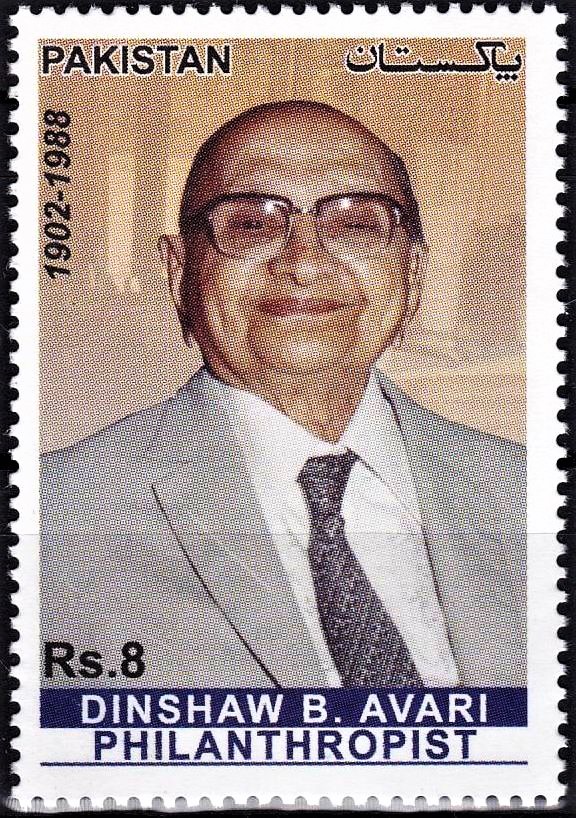
References:
- pakpedia. 10th October 2020; Available from: https://www.pakpedia.pk/ishtiaq-hussain-qureshi/
2 Replies to “Ishtiaq Hussain Qureshi | the Grand Old Man of Historiography”